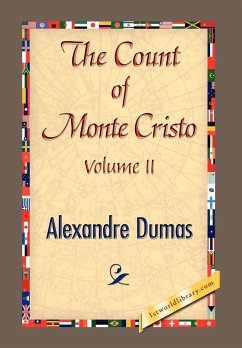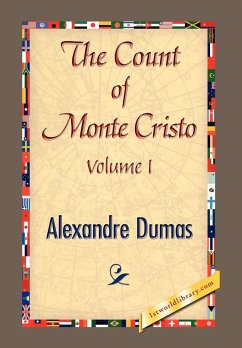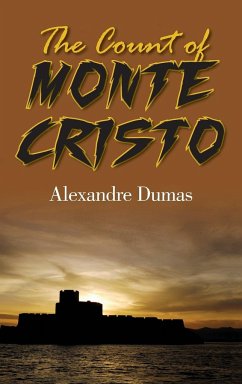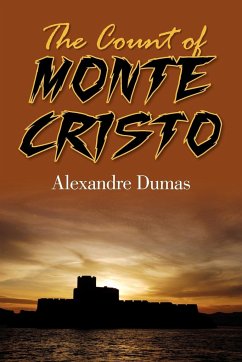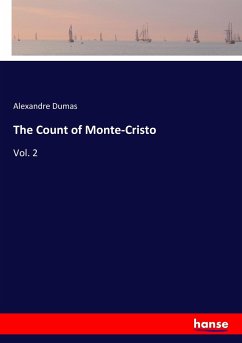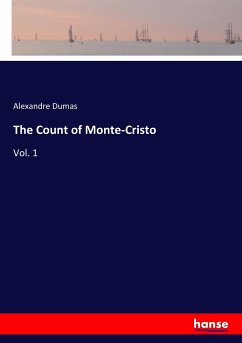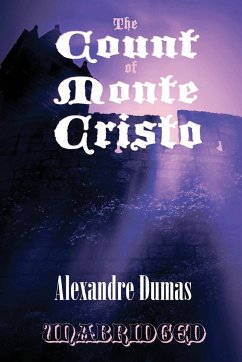
The Count of Monte Cristo
Versandkostenfrei!
Versandfertig in 1-2 Wochen
31,99 €
inkl. MwSt.

PAYBACK Punkte
16 °P sammeln!
Complete and unabridged. The Count of Monte Cristo takes place in France, Italy, and islands in the Mediterranean during the historical events of 1815-1838, beginning from just before the Hundred Days period (when Napoleon returned to power after his exile) and spanning through to the reign of Louis-Philippe of France. In 1815 Edmond Dantès, a young and successful merchant sailor who has just recently been granted the succession of his erstwhile captain Leclère, returns to Marseille to marry his fiancée Mercédès. Leclère, a supporter of the exiled Napoléon I, found himself dying at sea ...
Complete and unabridged. The Count of Monte Cristo takes place in France, Italy, and islands in the Mediterranean during the historical events of 1815-1838, beginning from just before the Hundred Days period (when Napoleon returned to power after his exile) and spanning through to the reign of Louis-Philippe of France. In 1815 Edmond Dantès, a young and successful merchant sailor who has just recently been granted the succession of his erstwhile captain Leclère, returns to Marseille to marry his fiancée Mercédès. Leclère, a supporter of the exiled Napoléon I, found himself dying at sea and charged Dantès to deliver two objects: a package to Marshall Bertrand, and a letter from Elba to an unknown man in Paris. On the eve of his wedding to Mercédès, there is an anonymous note accusing Dantès of being a Bonapartist traitor. Caderousse, Dantès' cowardly and selfish neighbor, is drunk while the conspirators set the trap, and while he objects to the idea of hurting Dantès, he stays quiet when Dantès is arrested then sentenced, even though his testimony could have stopped the entire scandal from happening. The deputy crown prosecutor in Marseille, while initially sympathetic to Dantès, destroys the letter from Elba when he discovers that it is addressed to his own father, a Bonapartist. In order to silence Dantès, he condemns him without trial to life imprisonment.






